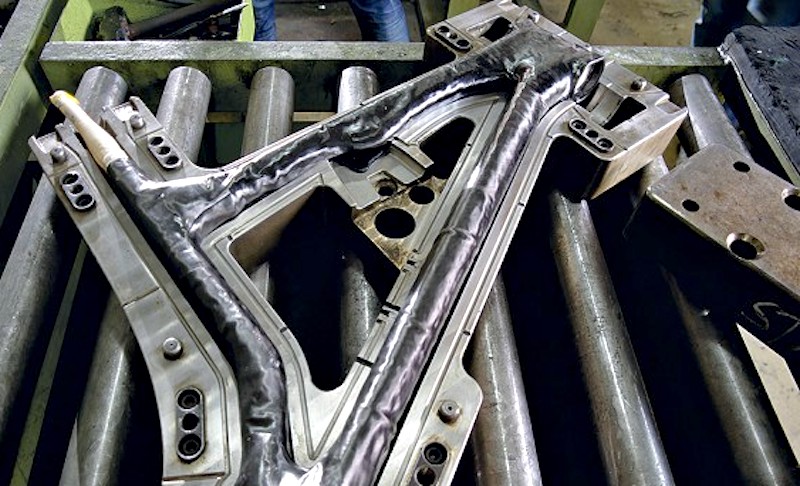
Yes. That’s the quick answer. I’m still surprised to find people out there that think carbon is fragile and weak. It’s not true. Here’s what you need to know about carbon fiber bikes and manufacturing.
Unless you’re paying for a custom ride, most bikes at the shop today are made of aluminum or carbon fiber. In mountain bikes, aluminum still dominates the low and mid price ranges with carbon reserved for the top of the line.
The two big advantages of carbon fiber are aesthetics and weight. While there is only so much manipulation you can do to an aluminum tube, carbon fiber allows you to form more complex shapes and place material exactly where it’s needed. The ability to optimize the structure in general is what makes carbon parts lighter than aluminum.

In the realm of lightweight road bikes, some areas of the frame will be thick for strength and stiffness, while other tubes will be paper thin where extra structure is not needed. This is all good for road bikes that see minimal abuse, but on a mountain bike one solid impact to a thin tube and the frame is toast. For that reason, most mountain bike frames (outside of the super light XC race stuff) are overbuilt for durability. The tubes are thicker and heavier than they really need to be for the sake of impact resistance (because the engineers know you’re going to crash).
This is also some of the reason carbon mountain bikes don’t trickle as far down the price range as they do on the road side. Carbon fiber is much pricier than aluminum, so with the thicker than necessary tubes negating much of the possible weight savings, it can make the price difference hard to swallow. Paying an extra grand for a bike that’s a pound or two lighter isn’t appealing to a lot of people. At that point, you’re mostly buying carbon for its aesthetics and high end allure.

Any bike model from a reputable brand is going to have passed a whole slew of structural tests before it’s for sale. The standards are the same regardless of material, so your carbon bike is going to be just as strong as an aluminum one. Carbon DH bikes have been getting raced at the highest levels for a long time now.
Do keep in mind that carbon fiber does not dent and bend like aluminum. If you do take a really hard crash, it’s important to carefully inspect your bike for any cracking or damage. Get in contact with you’re bike shop or manufacturer if you’re unsure. Whatever your bike is made of, maybe treat it nicer than this:
